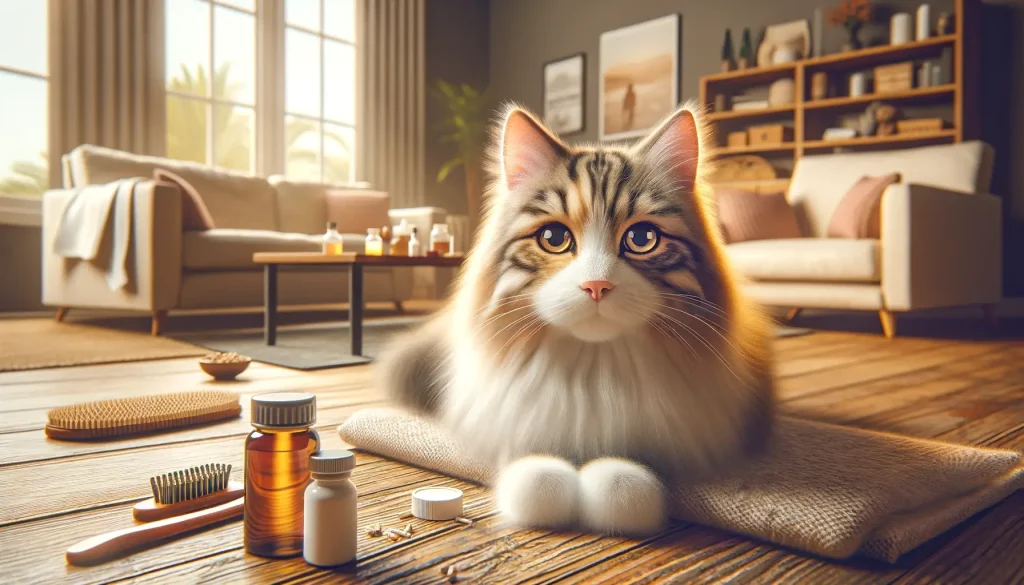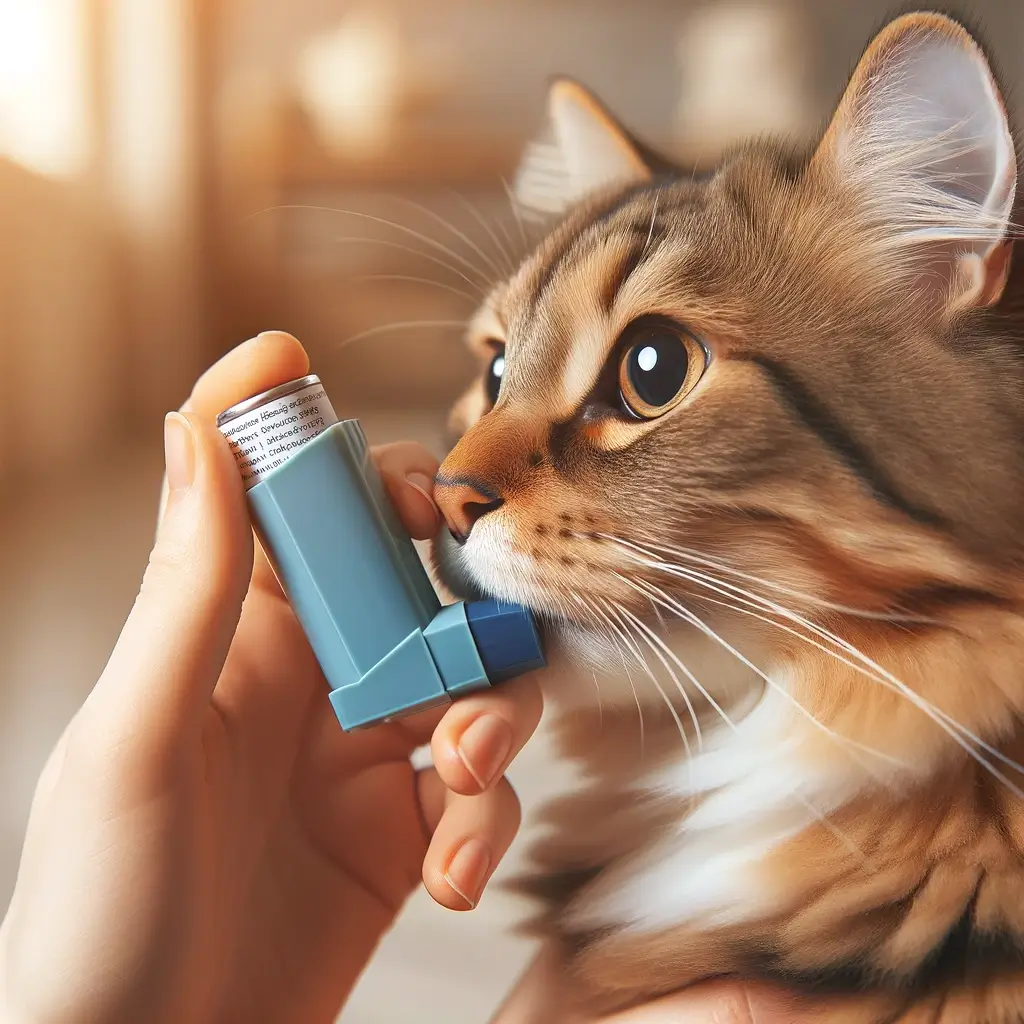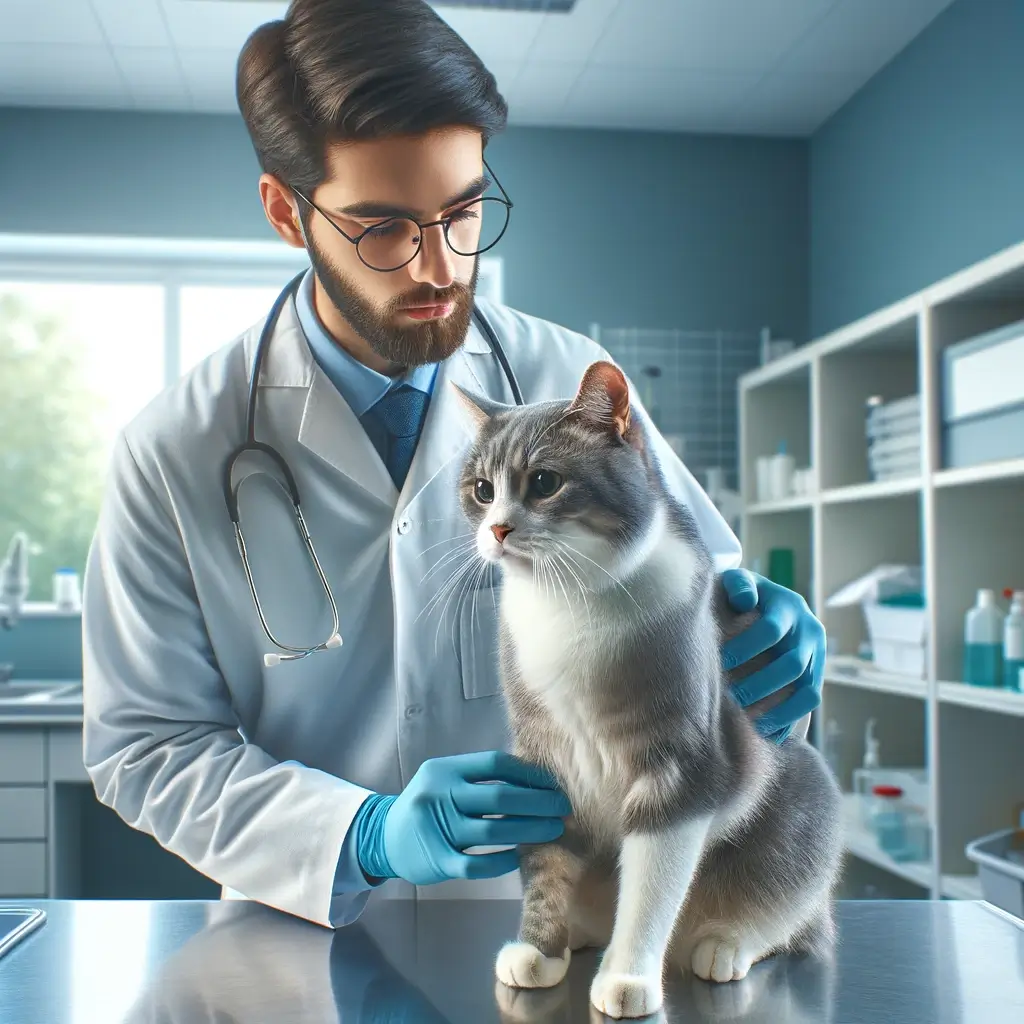
Seeing your feline friend in distress is worrying for any pet owner. When your cat starts to cough, it can be a sign of several underlying issues, ranging from minor irritations to more serious health concerns. Understanding why your cat is coughing is crucial to ensuring they receive the right care and treatment. In this article, we’ll explore the common reasons behind a cat’s cough, backed by relevant statistics, interesting facts, and concrete examples. Whether you’re a new cat owner or have been in the company of cats for years, this piece will shed some light on this pressing issue.
Why Is My Cat Coughing?
Coughing in cats is not as common as in humans or dogs, making it all the more alarming when it occurs. A cough can be a symptom of various conditions, some of which require immediate veterinary attention. From hairballs to respiratory infections, understanding the root cause is pivotal. But what specifically are the top reasons your cat might be coughing, and how can you identify them? Let’s dive into the facts and find out.

Understanding Cat Cough Causes
When your cat starts coughing, pinpointing the cause is essential. Below, we break down the major reasons and how they affect your cat’s health.
- Hairballs: Often, cats cough due to hairballs. While grooming, they ingest fur, which can accumulate in the digestive tract and lead to coughing.
- Asthma: Asthma in cats is more common than many think, characterized by chronic inflammation of the small airways in the lungs.
- Respiratory Infections: Both viral and bacterial infections can cause coughing. Feline upper respiratory infections are particularly notorious for this.
- Heartworm Disease: Though less common, heartworms can cause coughing in cats. This condition is serious and requires immediate veterinary attention.
- Other Foreign Bodies: Small objects or particles inhaled by your cat can get stuck in their throat or airways, causing them to cough.
Identifying the root cause of coughing is a step towards finding the right treatment. However, it’s important to consult with a vet for a proper diagnosis and treatment plan.
| Cause | Description | Immediate Action |
|---|---|---|
| Hairballs | Accumulation of ingested hair in the digestive tract. | Regular grooming to reduce hair ingestion. |
| Asthma | Chronic inflammation of the lungs’ small airways. | Consult a vet for medication and management. |
| Respiratory Infections | Can be caused by viruses or bacteria, affecting the upper respiratory tract. | Seek vet care for appropriate antibiotics or supportive care. |
| Heartworm Disease | A serious condition caused by parasitic worms living in the heart and lungs. | Urgent vet attention required for treatment. |
| Foreign Bodies | Inhalation of small objects blocking the airways. | Immediate vet visit to remove the foreign object. |


Each cause behind your cat’s cough requires a different approach and treatment. Being aware and vigilant can help keep your cat healthy and happy. Remember, regular check-ups and preventive care are keys to a long, vibrant life for your feline companion.
Home Care and When to See the Vet
Knowing when you can treat your cat at home and when to seek a vet’s help is crucial. While some coughs are harmless, others signal serious health issues. Here’s a guide to help you decide.
What You Can Do at Home
For mild cases, like hairballs, you can often manage these at home. Regular grooming helps prevent hair accumulation. A diet rich in fiber may also reduce hairball formation. If your cat has a mild cough that seems not to distress them much, keep an eye on them. Ensure they have plenty of water to stay hydrated.
Wet weather or mild colds can occasionally cause coughing. Making sure your cat is warm and limiting exposure to cold environments can help. However, if symptoms persist for more than a few days, it’s time to call the vet.
When Vet Help Is Necessary

Asthma, respiratory infections, and foreign bodies require professional medical attention. Asthma and respiratory infections often mimic each other, with symptoms like wheezing and labored breathing. Vets can offer precise diagnoses and treatment, including medication for inflammation and infection.
Heartworm disease is another serious condition manifesting through coughing, among other symptoms. It requires immediate vet intervention. The same goes for coughs thought to be caused by foreign bodies. If you suspect your cat inhaled or ingested something they shouldn’t have, see your vet right away to avoid more severe complications.
While home care is sometimes appropriate, understanding when to seek expert advice is key. Your cat’s health and safety should always come first. This means being attentive to their symptoms and acting quickly when they show signs of distress. Remember, when in doubt, consult with your vet. They can offer the best advice and treatment options tailored to your cat’s specific needs.
Regular visits and preventive care, including vaccinations and parasite control, go a long way in keeping your feline friend cough-free and healthy. Addressing questions like “Why is my cat coughing?” promptly and effectively ensures a happier life for both you and your pet.
Preventing Future Coughs in Your Cat
Prevention is often better than cure. This holds true for avoiding cough-related issues in cats as well. By taking proactive steps, you can minimize the chances of your cat developing cough-inducing conditions. Here are actionable tips every cat owner should consider:
- Regular Vet Check-ups: Routine vet visits help catch early signs of problems that could lead to coughing.
- Keep Up with Vaccinations: Protect your cat against common respiratory infections by staying up to date with vaccinations.
- Heartworm Prevention: Administer heartworm preventive medication as recommended by your vet to avoid heartworm disease.
- Avoid Smoke: Smoke can irritate your cat’s airways. If you smoke, do so away from your cat.
- Quality Diet and Hydration: A balanced diet and plenty of water help maintain your cat’s health and can reduce hairball formation.
- Regular Grooming: Reduce the risk of hairballs by brushing your cat regularly, especially if they have long fur.
- Maintain a Clean Environment: Keeping your home clean and free of dust and other potential irritants can help prevent coughing.
These steps not only contribute to preventing coughs but also to your cat’s overall wellbeing. A healthy lifestyle, combined with regular veterinary care, ensures that your cat stays happy and healthy. Remember, while some precautions can reduce the risk of coughing, always consult with a vet if your cat starts to cough. Early detection and treatment are key to managing any health issues effectively.
Environmental Factors Affecting Your Cat’s Cough

Environmental factors play a significant role in your cat’s health. Sometimes, the reason behind a cough is not directly related to the cat’s internal health but to its surroundings. Recognizing these factors can help you create a safer and healthier environment for your pet.
- Polluted Air: Cats living in areas with poor air quality may cough more frequently. Smoke, smog, and industrial pollutants can irritate their respiratory system.
- Allergens: Common allergens like pollen, mold, and dust mites can trigger coughing. Cats are as susceptible to seasonal allergies as humans.
- Chemical Irritants: Household cleaners with strong odors or airborne chemicals from sprays can bother your cat’s airways, leading to coughing.
- Dry Air: Especially in winter, indoor heating can dry out the air, which may irritate your cat’s throat and respiratory tract.
- Secondhand Smoke: Exposure to tobacco smoke is harmful to cats and can lead to chronic coughing or even more serious respiratory issues.
Understanding the impact of the environment on your cat’s health is crucial. Consider using air purifiers to improve indoor air quality, keep your home clean using pet-friendly cleaning products, and ensure your pet is not exposed to smoke. Regularly changing air filters and keeping windows open for better ventilation (when the outdoor air quality is good) can also help reduce indoor pollutants.
Lifestyle adjustments can significantly reduce your cat’s exposure to harmful elements. Remember, a cough is a sign that should not be ignored. While it’s essential to consider these environmental factors, consulting with a veterinarian is always the best course of action to rule out any serious underlying health issues.
Making your home safe and comfortable for your cat goes a long way in preventing coughs and ensuring their wellbeing. Paying attention to these details can make a big difference in your cat’s quality of life.